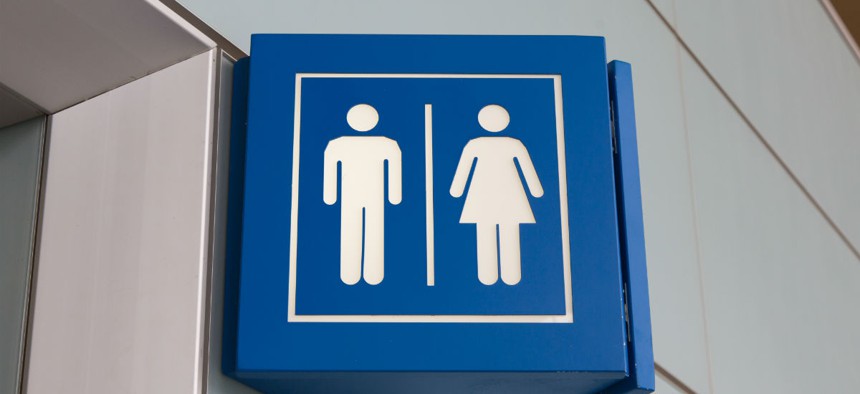
What Contractors Need to Know About New Sex Discrimination Rules
The Labor Department’s new regulations reflect 45 years of legal developments.
On June 15, the Office of Federal Contract Compliance Programs published a final rule detailing the obligations of federal contractors to ensure nondiscrimination on the basis of sex, and to take affirmative action to treat all applicants and employees equally without regard to sex.
OFCCP is an agency within the Labor Department that enforces a number of employment-related laws applicable to federal contractors, including Executive Order 11246, which bars discrimination on the basis of sex and race. OFCCP originally published its Sex Discrimination Guidelines in 1970, but had not previously revised them. This new rule represents the agency’s interpretation of Executive Order 11246 as it relates to discrimination on the basis of sex, sexual orientation, or gender identity in light of 45 years of legal developments. The new rule takes effect Aug. 15.
Sex Discrimination
The stated purpose of the new rule is to set forth federal contractors’ obligations to ensure nondiscrimination on the basis of sex, including pregnancy, childbirth, or related medical conditions, gender identity, transgender status, and sex stereotyping.
For example, contractors are prohibited from denying women with children employment opportunities that are available to men with children. They are also prohibited from denying access to any facilities based on sex with the exception of same-sex or single-user restrooms, changing rooms, showers or similar facilities. Transgender employees may not be denied access to same-sex facilities for use by the gender with which they identify.
Compensation
The new rule follows established law in providing that compensation may not be based on sex, but includes language that may indicate OFCCP's intention to make comparisons between employees who would not have been treated as similarly situated under the standards now generally understood as applying to pay discrimination claims. Under current law, employees who work in the same job, and usually in the same facility, are considered similarly situated.
However, it appears that OFCCP may be seeking to broaden the meaning of “similarly situated,” by citing tasks performed, skills, effort, levels of responsibility, working conditions, job difficulty, and minimum qualifications as factors to consider in determining whether employees are similarly situated. This is important, because the likelihood of seeing an apparent pay disparity increases as the similarity of the compared employees decreases.
Pregnancy, Childbirth and Related Conditions
The new rule prohibits discrimination on the basis of pregnancy, childbirth, or related conditions (such as breastfeeding) and requires federal contractors to provide health insurance that covers medical costs for pregnancy, childbirth, or related medical conditions (if such costs are covered for employees with other medical conditions), as well as pregnancy-related accommodations (if they are provided to employees with other medical conditions).
Although the new rule does not explicitly require contractors to provide light duty assignments for women requiring accommodations for conditions related to pregnancy and childbirth, it makes it much harder for contractors to deny such accommodations.
Fringe Benefits
The new rule affirms the well-established principle that federal contractors may not discriminate on the basis of sex with regard to fringe benefits. However, further review of the commentary accompanying the final rule reveals some potentially significant implications.
Specifically, it requires federal contractors’ medical plans to cover treatments, such as hormone therapy, designed to change transgender employees’ physical characteristics to match those of their gender identity.
Sex Stereotyping
The new rule prohibits employment decisions based on sex stereotypes, including in the instance of transgendered employees. This includes, for example, adverse treatment of women because they do not wear jewelry or make-up, and adverse treatment of male employees because they are perceived to be effeminate. Federal contractors are also cautioned they must not treat employees or applicants adversely because of their sexual orientation.
Sexual Harassment
The new rule also briefly summarizes the law prohibiting sexual harassment, which is defined to include harassment based on gender identity, transgender status, pregnancy, childbirth, or related medical conditions, and harassment because of sex or sex-based stereotypes.
Best Practices
The final rule also includes an appendix listing recommendations OFCCP states are not required but constitute best practices. Among others, these include such practices as changing gender-specific workplace language, such as “foreman” and “lineman” to gender-neutral alternatives; and designating single-user restrooms, changing rooms and showers as sex-neutral.
Impact and Recommendations
Although OFCCP’s position in the final rule is consistent with that espoused by other federal agencies in recent years, it contains several noteworthy interpretations that do not necessarily track the actual practices of most employers, or even most federal contractors. For instance, contractors may not be aware of, or in conformity with, OFCCP’s bathroom and health insurance requirements for transgender employees, this being a very rapidly developing area of the law.
Contractors should note the expanded protections relating to pregnancy, childbirth or related conditions, gender identity, and transgender status as discussed above. OFCCP is going to be looking for—and seeking to remedy—instances of sex stereotyping. Federal contractors also should consider the impact of the final rule on their provision of fringe benefits.
David Goldstein is a shareholder in the Minneapolis office and Meredith Shoop is an associate in the Cleveland office of Littler Mendelson. David is also co-chair of the Government Contractors Industry Group and OFCCP Practice Group.






